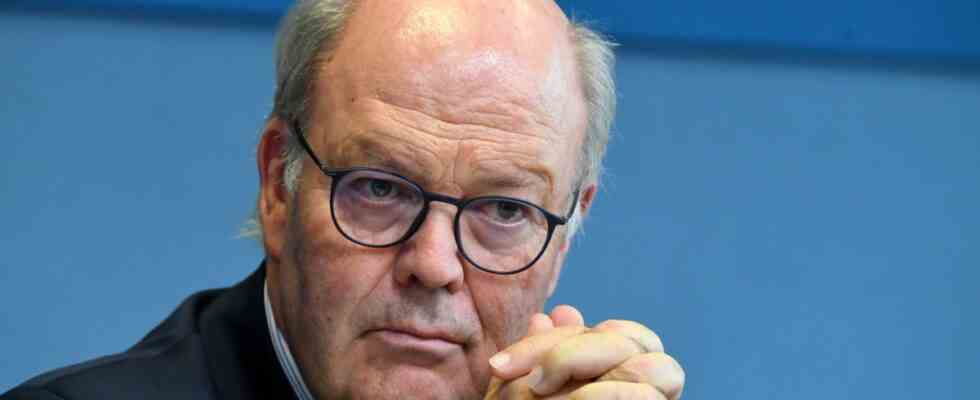The terms red radio and black radio have become common over the decades as designations for supposed political tendencies of public service broadcasters. But is there now also Jamaica radio? Yes, many employees of the NDR state broadcasting company in Kiel would say. They criticize managers in their house for maintaining a close relationship with the then state government made up of the CDU, FDP and Greens in 2020.
In essence, it is about reporting on the resignation of the CDU politician Hans-Joachim Grote
First, eight editors contacted the editorial committee, the internal interest group for journalists at NDR, and made corresponding allegations. Last week then quoted Business Insider from the panel’s investigative report on the matter.
The case took many turns within a few days: the complete committee report is now online following a leak from an unknown source. On Monday he reported star, he has a “fire letter” in which 72 employees demand “a complete and transparent processing of all allegations”. In the evening, the NDR state broadcasting council in Schleswig-Holstein met for a special session. The beginning is in September 2020: At that time, an editor from the broadcasting center in Kiel turned to the editorial committee for the first time, “because he sees himself impaired in the independent fulfillment of his duties in broadcasting,” as the committee writes. In terms of content, it is essentially about the reporting by NDR Schleswig-Holstein on the resignation of CDU politician Hans-Joachim Grote.
Grote resigned from his post as Minister of the Interior on April 28, 2020 – at the urging of Prime Minister Daniel Günther, who was also a Christian Democrat. Günther accused Grote of having sent confidential information out digitally. The Prime Minister was “among other things, the obvious proximity” of the minister to a reporter Kiel news been “too much”, reported the NDR at the time. Grote denied the allegations. The NDR internal dispute revolves around whether it was right to cancel an interview promised by Grote. Such an interview is actually a stroke of luck, often politicians are anything but willing to talk in such situations.
An interview is canceled because it is classified as “poorly profitable”.
Norbert Lorentzen, now editor-in-chief of the NDR for Schleswig-Holstein, who was head of the television programming department there at the time of the dispute, and Julia Stein, head of the “Politics and Research” department in Kiel, wrote to the editorial committee that it was in view of the supposedly “poor” answers , which Grote had previously given the editors in writing, was “not very profitable” and “journalistically not mandatory” to conduct an interview with him for a TV report. As far as the CDU politicians are concerned, it is “clear that statements stand against statements” and either Günther or Grote “cannot always have told the truth”, summarizes the editorial committee. However, the NDR “misses the opportunity to ask and clarify critical questions to both sides”. According to the committee, the two NDR bosses argued “similarly to the prime minister”.
However, the conflict goes far beyond reporting on an important personal issue, it is also about fundamental questions. Another of the complaints reported by the committee is that executives acted like “ministry spokespersons” and brushed aside critical issues. The Landesrundfunkrat Schleswig-Holstein has now decided on an “objective and comprehensive examination of the “serious allegations”, as stated in a statement. Chairwoman Laura Pooth said with regard to the allegations that there should be no “working environment” that “go through Individual made possible”. Another point of criticism beyond the reporting on the resignation of the minister in 2020: In the editorial office it was “partly” not from Daniel Günther or Heiner Garg – the FDP man was Deputy Prime Minister until May – but from ‘Daniel’ or ‘ Heiner’,” complained employees, according to the committee.
At an “open talk” about a week ago at the NDR radio station in Schleswig-Holstein, Lorentzen responded to the criticism: “I really don’t think it matters whether employees of our house speak to government representatives or opposition leaders or parliamentary group leaders or anyone else,” said the editor-in-chief loudly overmedia. For him it is “not important at all whether you are still friends with them. For me it is always important: What do we do in the program?”
That a friendly bond between a politician and a journalist who reports on him is unproblematic is an idiosyncratic view. The German Association of Journalists North stressed that only the impression that there could have been an intervention in the reporting is a shame for the broadcaster – whose capital is the trust in independent journalism.

